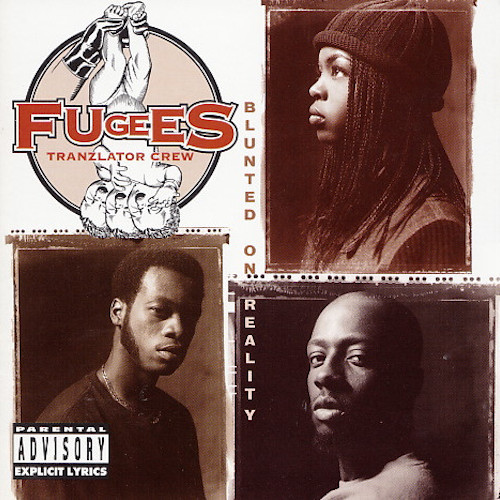“Yo Mona Lisa, could I get a date on Friday?
And if you’re busy, I wouldn’t mind taking Saturday”
That was my introduction to the Fugees back in 1994. Long before “The Score” brought their sound to the masses, long before all three members set out on solo careers, they were just a trio of rap hopefuls from South Orange, New Jersey looking for their big break. Their name “Fugees” was shorthand for “refugees,” reflecting the Haitian roots of Pras and Wyclef Jean, and was itself a rebranding from when the group was called Tyme and performed mostly with a live band called the Tranzlator Crew. Imagine for a moment a Fugees that only consisted of Pras and Lauryn Hill, and I know how hard that is to do, but once Pras’ cousin Wyclef was invited to join the group found the sound that would get them a deal with Ruffhouse Records.
There’s a problem with “Blunted on Reality” though. If you fell in love with the harmonious sound of Lauryn Hill a/k/a L-Boogie spitting the opening verse of “Vocab,” the third single off the album, you would have been sorely disappointed when buying the album. The version here omits her striking opening bars where “the bourgeoisie type of mental sucks like a flat comb.” In fact Hill doesn’t even come in on this version until the tail end, and all three members spit different verses from the single that became a huge hit. Even the music is different. The album “Vocab” sounds like an acoustic rap compared to the pounding rhythms of the Saleem Remi version that charted. It wasn’t advertised as a remix of the album track, probably because album buyers would have been mad it wasn’t included. That was a no win situation because I was mad the original version of “Vocab” WAS included.
At least most copies of the album include the “Nappy Heads” remix, which is a damn good thing. The two versions of “Vocab” are at least recognizable in comparison to each other, but the original “Nappy Heads” not only has different bars but a much more strident and aggressive tone completely unlike the relaxed Wyclef come-ons of the revisit. The good news is that the original IS a good song, although it sounds far more like fellow Jerseyite rap trio Naughty By Nature than anything you’d associated with the Refugee Camp.
What’s really striking though is how ill-considered their debut single “Boof Baf” was. While remaking both “Nappy Heads” and “Vocab” to garner the group commercial success makes sense in hindsight, nobody did anything to improve the first release. I suspect the reason why is because the album was recorded in 1992 but not released until ’94, which also explains why Wyclef was mocking other rappers by saying “some rhyme forwards (and) some rhyme backwards” and yelling that you can’t tell “the real rappers from these phonies.” ’92 was a watershed year for rap commercially, with artists like Kris Kross and Das EFX reaching a whole new generation of ears. Consequently their success irritated the artists who they leapfrogged over from the underground, so “Boof Baf” sounds reactionary and dated coming two years after its intended targets.
More than anything else though “Blunted on Reality” suffers from the fact “The Score” exists. Songs like “Recharge” would be perfectly fine examples of 1990’s East coast hip-hop in a vacuum, but they wouldn’t even be good enough for their sophomore album’s cutting room floor. Although Saleem Remi gets props (deservedly so) for the success of many Fugees remixes, Wyclef’s production is the heart and soul of both albums, and on their debut his musical choices are par for the course — acceptable but not that special. Since we’ve already brought up NBN, “Giggles” sounds more like Treach and friends than anything they’ve ever done. DJ KayGee might just feel ripped off.
The facts are simple here — “Blunted on Reality” has two great singles, only one of which appears on the album itself, and a whoooooooole lot of filler material. Pras doesn’t really change from the first album to the second. He’s always been the weak link in terms of his simplistic rhymes and stiff delivery, which have their own charm as one-third of a group, but sound insultingly bad as a soloist. L-Boogie sounds so much younger here than on the sophomore release that she’s not really the same woman, and Wyclef was still finding his voice in front of and behind the boards. This album amounts to a promising debut that gave only the slightest hint of the massive success that was soon to come.

